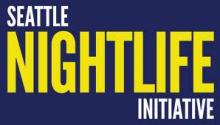Say what you will about Seattle mayor Mike McGinn, the guy isn't shy about actually doing stuff, which puts him a cut above most politicians. McGinn's got my tentative vote thanks to his most recent project, the Seattle Nightlife Initiative. Basically, it's an attempt to fix some of the city's many ridiculous, outdated and strangely conservative liquor laws without sending the vote to the ballot, where progressive ideals in Washington state go to die. The centerpiece of the initiative is the extension of liquor service hours past 2:00 AM, which is something that makes my lushy heart flutter and will also cut down on a variety of problems that result from last call when bars puke out scads of drunks into the streets every night. Here's a breakdown of what the initiative is actually going to do.
"Flexible" Liquor Sales Hours
Because any changes to the law surrounding alcohol in Washington have to be candy-coated within an inch of their legislative lives, the Nightlife Initiative has adopted the term "flexible hours" for the plan to let establishments serve alcohol after 2:00 AM. The aim of this change is twofold. First, no city outside some kind of fascist dystopia has the transit or law enforcement resources to handle the rush of bar patrons spilling into the streets at once come last call. It's a practice that results in higher incidents of drunk driving, altercations, public urination and all those other unfortunate things that happen when people who have been hurried to finish their drinks re-enter the non-drinking world en mass. By allowing bars to serve more or less all day and all night, the initiative will allow the flow of intoxicated people to be slow and steady, relieving the stress on city infrastructure. Second, there's a whole lot of business and tax revenue locked in those late hours. Bars will make more money by being able to serve people longer and later, and the city will make more money from tax on those late night sales. Everybody but the poor drunk with no regard for his credit card wins.
Extension and Education of Transit Options
Drunk people should not drive, but that's what happens when drunk people don't want to pay through the nose for a cab and they've missed (or don't known about) the last bus home. The early part of the initiative has involved raising awareness of the late night bus lines that run after 2:00 AM, but the more important piece of the plan is a no-brainer involving street parking. One of the reasons people either don't drive to the bars or feel compelled to drive home after a night of drinking is because they don't want their cars to get towed for being parked in a metered spot after 8:00 AM the next day. The initiative is implementing a system to give people a chance to pre-pay for next-day meter time starting at 10:00 PM instead of 4:00 AM so people can plan ahead while still sober, because that sort of thing is possible with digital meter systems.
Institutional Overhaul
The other side of the initiative involves how the City and liquor-vending businesses interact, in that the system is currently screwed up and needs to be fixed. This means creating outreach programs to give businesses a direct line to everything from security training to Liquor Board consultation so the relationship between local government and local businesses isn't so antagonistic. There's a lot of language in the initiative that seems to be there for the benefit of people who disapprove of any nightlife whatsoever, but aside from some promises that "rave parties" will be curtailed, it's basically just a complicated way of saying "we're trying to keep things civil because it's not 1922 and modern bars aren't speakeasies so we should probably act like alcohol is legal for a change."
The Seattle Nightlife Initiative is coming together piecemeal but there haven't been any major speedbumps along the way just yet. The final word on the extended liquor sales hours will come down some time in the next month and insider reports seem optimistic. For more information about the initiative, visit the official government website.
